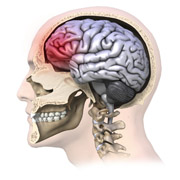Research and Innovation, UNL Office of

Center for Brain, Biology, and Behavior: Faculty Publications
Document Type
Article
Date of this Version
4-2020
Citation
Poster presentation, Spring Research Fair, 2020, University of Nebraska-Lincoln.
Abstract
Alexithymia is associated with difficulties in emotional self-regulation, and alexithymia is specifically associated with an absence of emotional experience and cognition of emotion. Past research has indicated a potential association between alexithymia and the CRHR1 gene . Situational factors may also impact the expression of the CRHR1 gene within an individual. Berenbaum (1996) found associations between PTSD/childhood trauma and alexithymia. This study examined these associations using the Online Alexithymia Questionnaire-G2 (OAQ-G2) as well as DNA samples gathered from 657 participants at the University of Nebraska-Lincoln (72% women; 78.6% white; mean age= 20.34; standard deviation of 2.6). It was hypothesized that possessing at least one G allele of rs110402, a single nucleotide polymorphism (SNP), which has previously been associated with higher scores on the alexithymia questionnaire would result in higher scores on the alexithymia questionnaire. It was further hypothesized that when the risk allele is present, a history of childhood trauma would be association with a higher score on the alexithymia questionnaire. No association was found between any of the variables within the population. Future research into other potential biological association could lead to a better understanding of the origins of alexithymia.
Included in
Behavior and Behavior Mechanisms Commons, Nervous System Commons, Other Analytical, Diagnostic and Therapeutic Techniques and Equipment Commons, Other Neuroscience and Neurobiology Commons, Other Psychiatry and Psychology Commons, Rehabilitation and Therapy Commons, Sports Sciences Commons


Comments
Copyright 2020 by the authors.